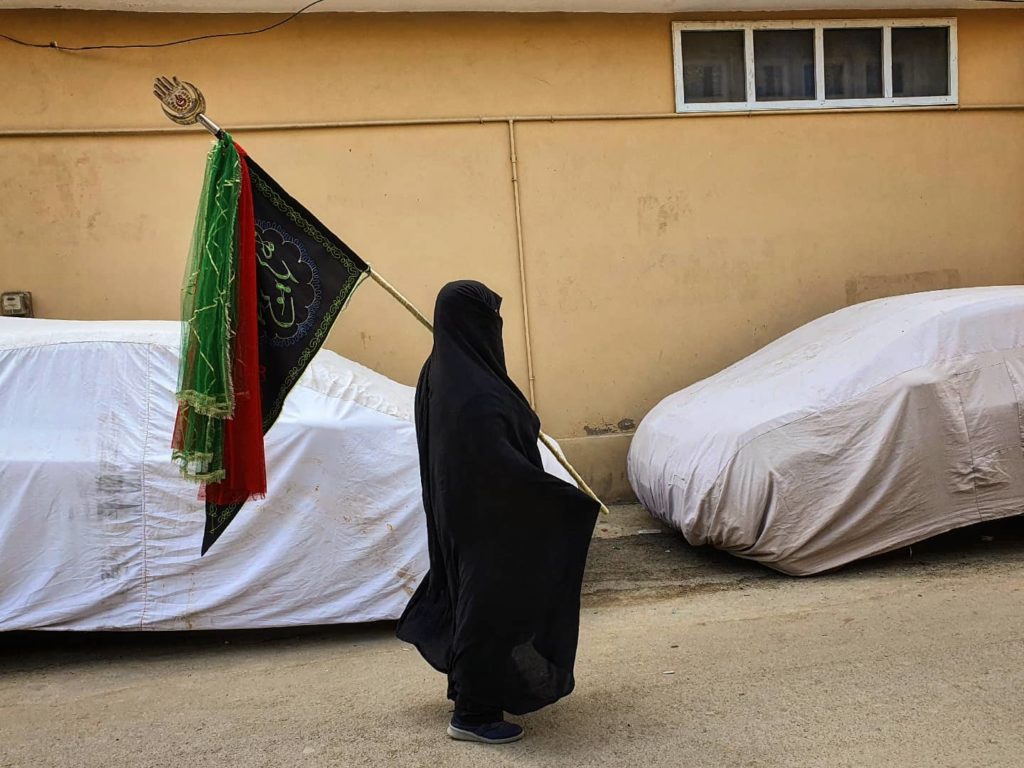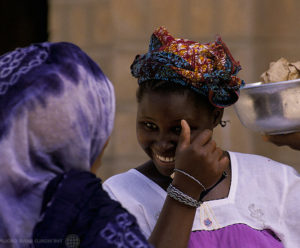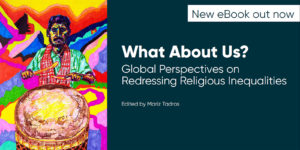Since researching the experiences of gender discrimination against women in poverty who belong to religious minorities, many fellow feminists have turned their back on me.
The inherent assumption among some of my feminist critics is that by defending women who are targeted on account of their religious affiliation, I am defending their religions. Yet defending the rights of a Hindu woman in Pakistan or Muslim woman in India do not constitute defending Hinduism or Islam.

Defending a woman’s right not to be discriminated against because of her identity and challenging religious bigotry both go hand in hand. We need to challenge all political projects that seek to homogenize people while simultaneously defending women, minorities, artists and others whose positioning accentuates their experiences of inequality.
Feminist reluctance to address injustices experienced by women who belong to religious minorities is also driven by concern that we end up empowering religious movements whose ethos is against women’s equality.
Again, we need to distinguish between women who are the targets of hate because they do not share the same faith as the majority, and anti-feminist movements who often are from the majority. We need to show solidarity with the former while challenging the latter.
Well-meaning progressive, feminists based in the West are reluctant to openly advocate for the rights of religious minority women living in Muslim majority contexts because of legitimate concerns that this would feed into orientalist (racist) representations of radical militant Islamist groups or by intolerant sections of society.
Yet can we be inadvertently reproduce a colonialist mindset when we decide to omit the experiences of minority women out of fear of misappropriation in the west?
Why should women who have experienced genocide be denied transnational feminist solidarities because it would be more progressive to focus on the Muslims who were against the genocide.
CREID research shows that in countries including Iraq, Pakistan and Nigeria, experiences for women are made worse where their experiences of gender inequality, religious marginality and socio-economic exclusion intersect.
For example, women belonging to religious minorities become easy targets of vilification and assault because of the visible manifestation of difference through what they wear. Yazidi, Sabean or Christian women are exposed to harassment in disproportionate levels in Iraq because they do not cover their hair while in Pakistan, Hindu women dressed in Sari are subject to ridicule and targeting because their middle bodies are said to be ‘exposed’.
Even if you belong to the majority religion, and you cover up more than the others, this still means exposure to harassment for being seen to practice the religion differently, as experienced by Ahmediyya women in Pakistan and the Izala Sufi women in Nigeria.
Women from religious minorities can also be at significant risk of sexual assault. While all women in patriarchal societies are exposed to sexual harassment independently of their religious affiliation, women affiliated to religiously marginalized communities are targeted because of the circulation of stereotypes that they are more available or ‘fair game’ or that men are not obligated to respect them the same respect as those from the majority religion.
While all women living in poverty suffer the impact of gender, caste and socio-economic exclusion combined, the experiences of discrimination become more acute and severe when shaped by ideological prejudice.
In our research in the aftermath of Covid, Muslim women spoke about being denied health care because of the scapegoating of Muslims for the spread of the pandemic, while in Iraq Yazidi women spoke of how despicable stereotypes of Yazidi women not washing meant doctors denied them treatment.
The feminist movement cannot continue to represent itself as committed to inclusivity through intersectionality (the recognition of and redress to- interface of gender, race, class, ableism and so forth in shaping and influencing power dynamics) while turning its back on women who come from a religious minority background where their rights are denied.
A review by doctoral researcher Amy Quinn-Graham of UN Women’s website and publications related to intersectionality and/or ‘minorities’ from 2014 – 2019, showed that compared to indigenous women, migrant women, women with disabilities, women and girls living in rural localities, older women, and women and girls of African descent, all of which were accounted for in the UN’s Commission on the Status of Women agreed conclusions from 2017 onwards, concerns for the vulnerabilities facing “ethnic, religious and linguistic minorities” were raised only once and for the first time in 2019, by the EU.
Certainly, there are feminist movements, scholars and those engaged in policymaking who recognize and seek redress for discrimination on grounds of religion experienced by socio-economically excluded women, but it seems they are the exception, rather than the norm.
It is not too late for us to be inclusive, and this International Women’s Day we should recognize and show solidarity with women who belong to religious minorities living on the margins. We just have to start by not making excuses for their omission from our “intersectional lens”.
This article was originally published in www.ipsnews.net


